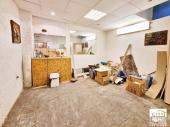|
| Specialized tourism in Bulgaria – new options |
|
|
 Bulgaria has set a goal in the sphere of tourism over the past few years – to break with the familiar summer – sea, winter – ski model, turning into a distinguished tourist destination over the whole year. Thus its natural, architectural and historical landmarks will be used to the fullest and tourism will be turned into a sustainable branch. The idea is implemented into the Strategy for Sustainable Development of Tourism till 2030 with an accent on specialized tourism options. That was also the subject of this weekend-held at Plovdiv’s Agricultural University Round Table of leading scientists and experts, entitled Specialized Types of Tourism – Challenges and Options. Possibilities for environmental, wine, rural and urban tourism were viewed, alongside the now gaining force “slow” tourism, based on the healthy lifestyle concept, also the accessibility of tourist environment to disabled people and other subjects as well.
Bulgaria has set a goal in the sphere of tourism over the past few years – to break with the familiar summer – sea, winter – ski model, turning into a distinguished tourist destination over the whole year. Thus its natural, architectural and historical landmarks will be used to the fullest and tourism will be turned into a sustainable branch. The idea is implemented into the Strategy for Sustainable Development of Tourism till 2030 with an accent on specialized tourism options. That was also the subject of this weekend-held at Plovdiv’s Agricultural University Round Table of leading scientists and experts, entitled Specialized Types of Tourism – Challenges and Options. Possibilities for environmental, wine, rural and urban tourism were viewed, alongside the now gaining force “slow” tourism, based on the healthy lifestyle concept, also the accessibility of tourist environment to disabled people and other subjects as well.
The report of Veronika Denizova from the University of National and World Economy on the positive experience in tourism of the small Black Sea town of Kavarna caused serious interest among the guests. Kavarna hosts the annual Bulgaria in Our Hearts International Folklore Gathering, Sea Shell and Fish Fest, A Week of the Sea and the renowned Kavarna Rock Fest. The latter turned the town into what’s now known as the cultural and rock capital of Bulgaria. Thus an economic boost has been marked in the region and the tourist season has been prolonged. Many Bulgarian and foreign bands have brought in their tunes into Kavarna over the past years, Motorhead, Manowar, Scorpions, Deep Purple and Europe being only some of them, all thanks to the initiative of ex-Mayor Tsonko Tsonev. However, the place has a new mayor as of the end of 2015 and its future development is seriously questioned.
Ornithology tourism is one of the modern forms of alternative tourism that are still not that popular here. It was viewed at the forum by the report of Vesselina Atanasova-Georgieva from Burgas University. The Burgas region has good conditions for this type of tourism. The Via Pontica migration route for birds along the Black Sea coastline is the most significant factor for that. It transfers 78% of all white storks and the entire European population of the pink Pelican, along with rare species such as the Imperial Eagle, the Egyptian vulture and griffons. Traditionally migrating birds use the Pomorie, Atanasovo, Mandrensko and Vaya lakes near Burgas for resting, nesting and spending the winter along Via Pontica. That is why the area’s wet zones are the most attractive spot for ornithologists in Bulgaria and thousands of European tourists. The two best and most modern bird watching tourist centers have been built up there by the Bulgarian Society for the Protection of Birds and the Green Balkans Federation.
Gambling tourism aimed at the Israeli market was viewed by Galina Ilieva from Varna’s Economic University as an option for year-round tourism. The Golden Sands and Sunny Beach Black Sea resorts appear to be most attractive for it and the report says that their development in this direction is very successful. However, restaurants and the quality of the food offered should be a subject to enhanced monitoring, as the all-inclusive type of service has really lowered the level in that sphere.
Wine tourism comes next whenever we talk on alternative options, as it’s been speeding up over the past years, both globally and nationally. It turns into the leading type in the southwestern town of Melnik and across the Thracian Plain.
The overall conclusion is that the tourist industry is framed as a major economic sector in Bulgaria, one of the few that have demonstrated a sustainable growth trend over the past years. Hard work will take us where the Strategy sets the goal for 2030 – at Top 5 of the Central and East European destinations for tourism. |
|
|
Source:
bnr.bg
|
| Monday, Oct 16, 2017 |
|
|
|
|
| » RENTALS |

|
|
|
| Commercial |
€ 100 |
|
| Location: |
Veliko Tarnovo |
|
|

|